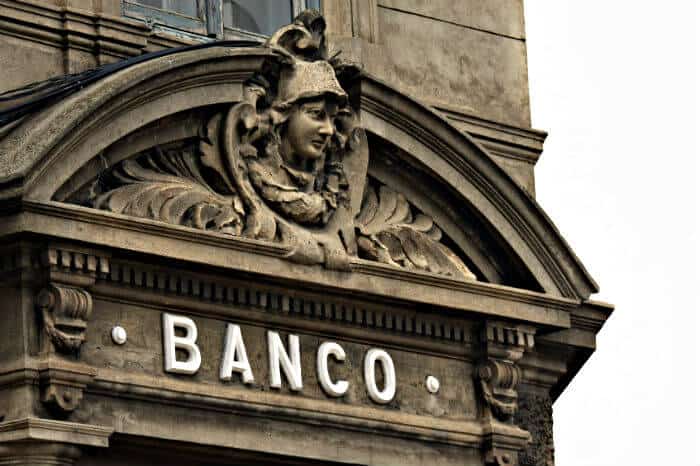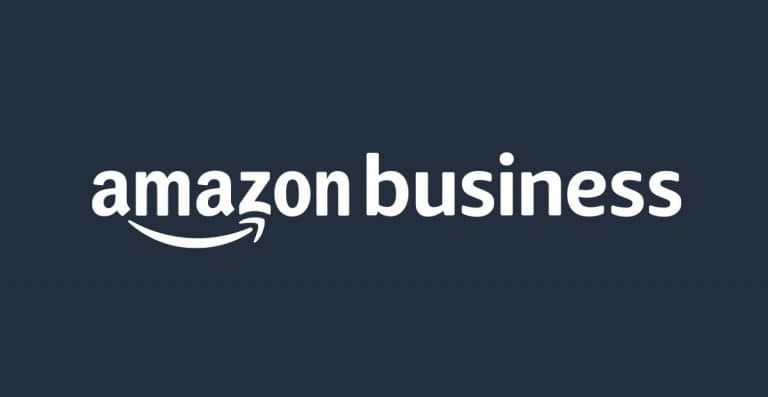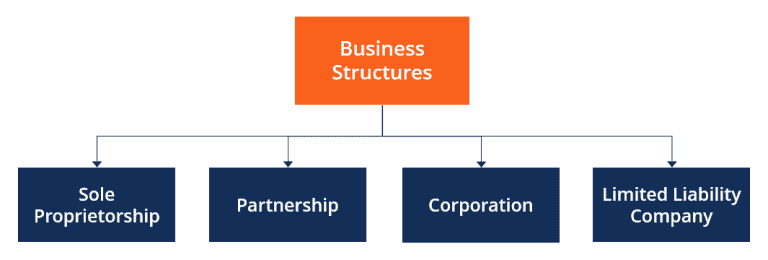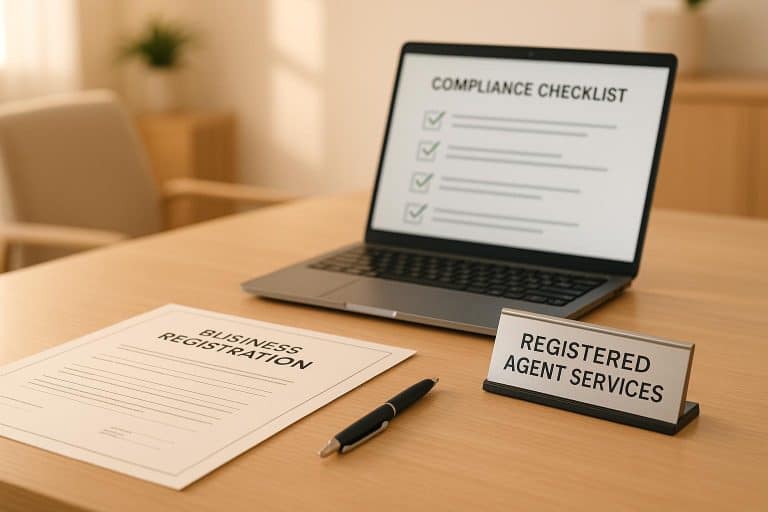Do you know the business bank account checklist for every entrepreneur when opening a limited liability company or corporation? This information simplifies bookkeeping and allows companies to track transactions and manage finances.
Non-residents can now create a business bank account for their companies incorporated in the United States from anywhere in the world.
Are you a novice seeking information about the business bank account checklist for desired results? Join us as we discuss the process and explain the necessities to succeed. Let’s get started.
What is a Business Bank Account?
A business bank account is designed for business-related purposes. It allows you to manage finances and keep track of customer transaction payments after company formation online. Furthermore, it simplifies bookkeeping, helps build credit and protects personal assets.
These accounts typically have mobile access, online banking, and overdraft protection. They’re ideal for companies of all sizes, helping them run more effectively and efficiently. Some of the types include the following:
- Business Checking Account:
Ideal for everyday business transactions and works like a personal checking account. You can make deposits, write checks and withdraw money when necessary.
A business checking account often comes at a fee to open and maintain based on your selected financial institution.
- Business Savings Account:
Perfect for building interest and storing surplus cash. You can save earnings for future business use and easily access money as it earns you more interest than a business checking account.
- Merchant Services Account:
It functions as an intermediary account accepting and processing payments before sending funds to your saving or checking profile. If your company allows customer credit card payments, you might need a merchant services account.
Benefits of a Business Bank Account
Not being at risk of mingling business and personal assets is an excellent benefit of this bank account. Furthermore, it’s helpful when filing taxes and facing legal battles. Some other advantages include the following:
- Line of Credit:
Do you need a large order purchase to keep your business operations running efficiently? You can make that dream a reality with business bank accounts using your line of credit as a safety crutch for emergencies.
- Obtain Business Loans:
Unlike personal loans, you can apply for and receive funds for business with this bank account. Business loans typically have a high monetary value long-term payment plan ideal for marketing strategies.
- Clean Financial Records:
A business bank account streamlines bookkeeping, so you never have to worry about separating your personal and business expenses. Furthermore, it prevents overspending during the company formation stage and simplifies budgeting.
Lastly, you’ll also get a clearer vision of your finances.
- Professional Business Image:
This bank account builds your brand reputation and makes your company look more legitimate, making clients feel more comfortable associating with you. Register your business free and most customers will trust your company if they get invoices and checks from your company.
What you’ll need to open a Business Bank Account
Personal and employee identification numbers (EIN) with mailing and business addresses are things you need to complete this task. Furthermore, you’ll need an operating agreement and Articles of Organization or Certificate of Formation.
Let’s dig into the business bank account checklist:
Employee Identification Number (EIN):
It’s also known as the Federal Tax Identification or Federal Employer Identification Number. The Internal Revenue Service (IRS) assigns a unique set of numbers to business entities for identification in the United States.
Lastly, you can get these nine digits online, which is ideal for proving your company’s identity.
Personal Identification:
This information refers to an individual’s essential documents for a business registration service. They include social security cards, driver’s licenses, and birth certificates to open a bank account.
The process requires at least two forms of identification ID, like a passport or state-issued identification, for desirable results.
Business Address:
It’s the location to find an organization or individual. When opening a business bank account, you’ll need a business address to verify your workspace.
There are a few rules to abide by when choosing a business address to avoid legal pitfalls. You can’t use a virtual mailbox, registered agent address, or PO Box.
Mailing Address:
It’s the address to receive mail and packages related to your business operations. You’ll need to provide this information when opening a bank account for your company.
Avoid using your home address. Instead, sign up for BusinessAnywhere virtual mailbox and use your new commercial mailing address for documentation.
Registered Agent:
A registered agent is a professional designated to receive legal documents and other essential information for your business. The account creation process requires you to provide the name and address of this individual.
Lastly, you should hire a registered agent if you run a limited liability company (LLC).
Fictitious Name Certificate or Doing Business As” (DBA):
You can get this certificate by registering through your local county agency. It’s crucial for your online company formations if your business operates with a trade name different from your legal name.
Business Permits or Licenses:
They are documents that allow your business to operate. You’ll need this information when opening your startup bank account, but it depends on your industry and location.
Articles of Organization:
It outlines the initial statements to create a limited liability company in the US. The document could be your certificate of formation, articles, or organization, depending on your state.
Operating Agreement:
Most banks don’t require this information when opening a business bank account. But it’s best to have it when necessary. If your company has multiple members, the bank might need to verify who can withdraw funds in your operating agreement for clarity.
Wrapping up
Now you know the business bank account checklist, it’s time to make proactive decisions. You’ll need a personal and employee identification number (EIN) and a business and mailing address to complete the process.
An operating agreement and Articles of Organization or Certificate of Formation can provide essential information for desired results. Consider working with a legal attorney for your online company incorporation to ensure you collect the necessary documents








